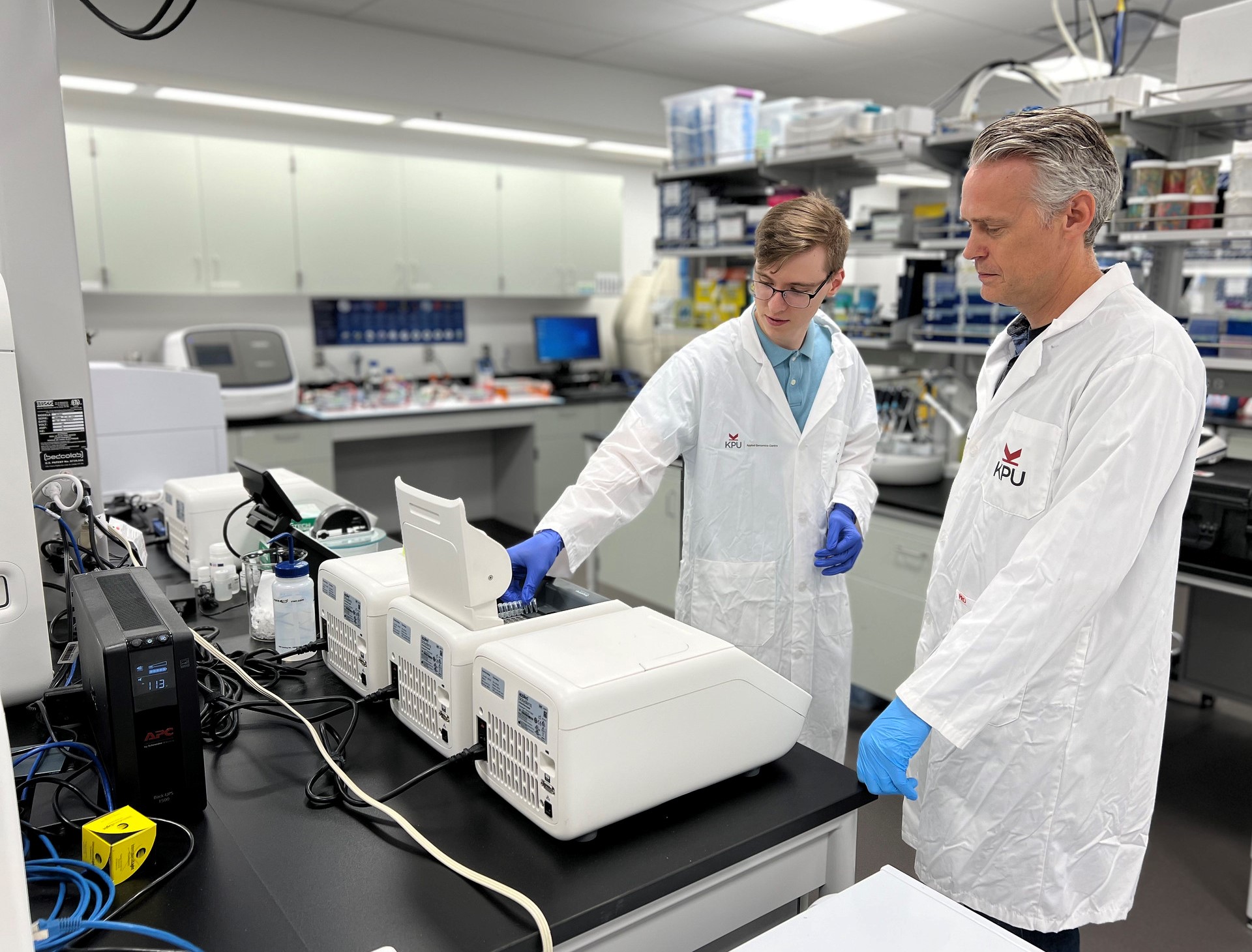Kwantlen Polytechnic University (KPU) researchers are one step closer to getting to the bottom of an illness in horses that has puzzled veterinarians.
Free Fecal Liquid (FFL) is a condition in horses characterized by the release of liquid before, during or after defecation. While it isn’t typically life-threatening for a horse, it can cause skin irritation, bloating and weight loss.
The exact cause of FFL is unknown, which is why local veterinarians reached out to Dr. Paul Adams and his team at KPU’s Applied Genomics Centre for help.
One common theory has suggested the condition is associated with an imbalance of the bacteria in a horse’s gut, a condition known as dysbiosis.
“Researchers across the globe have looked into dysbiosis but the results vary,” says Adams, director of the Applied Genomics Centre. “Some studies suggest it could be associated with FFL.”
KPU’s study, recently published in Scientific Reports, is the first to explore the theory in Canadian horses, he says.

Robert Wester, a student research assistant at KPU, says dysbiosis is known to impact the digestive system.
“Unhealthy gut bacteria have been commonly associated with many different conditions related to the digestive system,” says Wester. “Which is why we thought a relationship could be likely.”
To put it to the test, the team compared samples of feces from horses with FFL with samples from healthy horses for signs of dysbiosis.
A local veterinarian helped source the samples from stables across B.C.’s Fraser Valley. Researchers compared each FFL sample with a healthy sample from the same stable to minimize differences in gut bacteria resulting from other variables such as diet and environment.
To gain a better understanding of the horses’ gut bacteria, the KPU team analyzed DNA in the fecal samples, specifically the 16S rRNA bacterial gene, using state-of-the-art equipment at the Applied Genomics Centre. The DNA was extracted using the QIAamp PowerFecal DNA Kit and sequenced with the Ion GeneStudio S5 System.
The team didn’t find significant differences in the gut health of both groups, suggesting dysbiosis may not be to blame for FFL.
Adams hopes further studies can bring researchers closer to identifying the cause.
“Getting to the root of FFL and what causes it is important because it can help inform treatment,” says Adams. “Future research should continue to explore the role gut health plays in this condition.”
For Wester, this research allowed him to get hands-on experience as a student.
“This experience was really helpful for me as a student,” he says. “I got the opportunity to learn a lot of helpful tools when it comes to the analysis of this type of research.”
Founded in 2019, the Applied Genomics Centre is a research lab focused on developing molecular genetic and cellular product solutions for the agricultural and human health sectors. Students have the opportunity to gain critical research and development skills while engaged in projects that have a direct impact on their community.